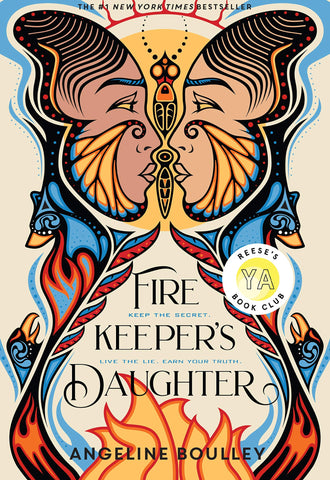At Fable, we acknowledge that we are grateful to be operating on the traditional, ancestral, and unceded lands of the hən̓qəmin̓əm̓ and Sḵwx̱wú7mesh speaking peoples in what is known as Burnaby, British Columbia.
Today marks the inaugural National Day for Truth and Reconciliation. Sharing the day with Orange Shirt Day, an Indigenous-led initiative to honor the children who survived residential schools and remember those who did not, today is a day of remembrance for Indigenous communities—and for others, it should serve as a reminder that we can all do our part to take actionable steps towards reconciliation. At Fable, we’ve made a donation to the Indian Residential School Survivors Society (IRSSS), but we can’t stop there. The road to reconciliation is an ongoing effort, and solidarity and allyship are essential—not just today, but every day.
We recognize the importance of creating space for Indigenous voices and experiences, and we encourage you to listen to the stories and deepen your understanding of the history of Indigenous peoples across the land. As a starting point, we’ve put together this list of six excellent reads written by Indigenous authors in hopes of inspiring you to do just that.

Firekeeper's Daughter
“There simply are too few stories told by and about Indigenous girls and women, especially from a contemporary viewpoint. We exist and have dynamic experiences to share beyond history books or stories set long ago.”
— Angeline Boulley
An enrolled member of the Sault Ste. Marie Tribe of Chippewa Indians, Angeline Boulley is a storyteller whose work centers on her Ojibwe community in Michigan’s Upper Peninsula. Firekeeper’s Daughter is her debut novel, a riveting story that quickly earned its place as a #1 New York Times Bestseller.

Braiding Sweetgrass
“People can’t understand the world as a gift unless someone shows them how.”
— Robin Wall Kimmerer
A mother, scientist, decorated professor, and enrolled member of the Citizen Potawatomi Nation, Robin Wall Kimmerer’s work embraces the idea that plants and animals are our oldest teachers. She lives in Syracuse, New York, where she is the founder and director of the Center for Native Peoples and the Environment and a SUNY Distinguished Teaching Professor of Environmental Biology.

Jonny Appleseed
“These queer stories are already ingrained in the land, and I’m just trying to find them. Things are never forgotten, they’re just forgone.”
—Joshua Whitehead
A Two-Spirit, Oji-nêhiyaw Indigiqueer writer from Peguis First Nation, Joshua Whitehead is a Ph.D. candidate, lecturer, and Killam scholar at the University of Calgary, where he studies Indigenous literatures and cultures with a focus on gender and sexuality. His work has won the Lambda Literary Award, the Georges Bugnet Award for Fiction, and most recently won Canada Reads 2021.

The Marrow Thieves
"I would love to be recognized as a writer of Indigenous stories. I'm not a Canadian writer. This is what is now known as Canada; it means something different to and for me."
— Cherie Dimaline
Cherie Dimaline is a Métis author and editor whose award-winning works of fiction have been published and anthologized internationally. In 2017, The Marrow Thieves won the Governor General’s Literary Award for Young People’s Literature in Text, and the Kirkus Prize for Young Readers’ Literature.

Five Little Indians
"My mother is a residential school survivor, as are my grandmother and cousins. I started writing this story in the 1990s. I think the seed really took shape when I was practicing law and I was representing survivors of residential schools.”
— Michelle Good
Michelle Good, a member of the Red Pheasant Cree Nation in Saskatchewan, is a Cree writer and retired lawyer whose work has taken home several prizes, including the 2020 Governor General’s Literary Award for fiction and the 2021 Amazon Canada First Novel Award.

Son of a Trickster
“If you don’t see yourself in the literary landscape, then the landscape needs you more than anyone.”
— Eden Robinson
A novelist and short fiction writer from the Haisla and Heiltsuk First Nations, Eden Robinson’s work has been met with both national and international acclaim, including the Ethel Wilson Fiction Prize, the Scotiabank Giller Prize, and the 2017 Writers’ Trust Fellowship.
Hopefully your next great read awaits—and of course, we encourage you to continue to discover and supplement these recommendations with additional works written by Indigenous authors.
The National Residential School Crisis Line is available 24 hours a day at 1-866-925-4419.


